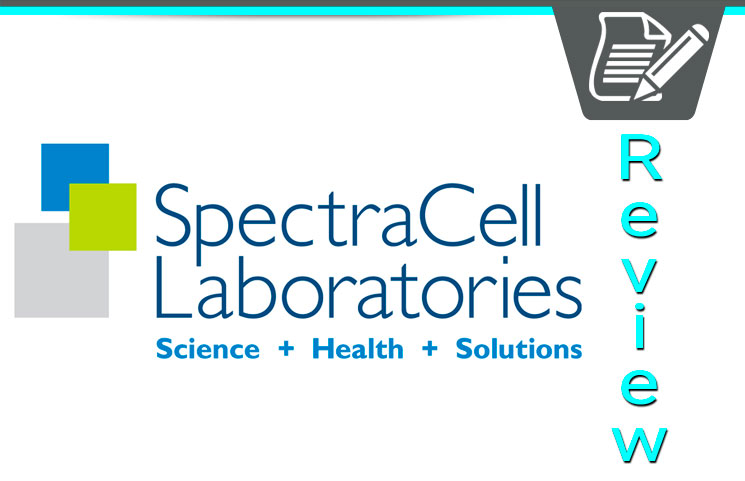SpectraCell Review
Regaining Health and Vitality with SpectraCell Nutritional Testing
Are you feeling weak, tired, or generally unwell?
Finding answers regarding health concerns and challenges can be a daunting task. Navigating the diagnostic process is made all the more frustrating by the medical industry’s tendency to treat disease rather than attempting to prevent it in the first place. Health professionals may overlook symptoms if they are not pronounced enough to clearly indicate that a patient is suffering from a recognized health disorder.
Enter SpectraCell — a clinical laboratory company that specializes in preventing illness through comprehensive diagnostic health testing with a focus on micronutrient analysis.
“Let Food Be Thy Medicine” — A Nutritional Approach to Disease Prevention
The concept of nutrition being essential to wellness is not a new one. Most of us understand the importance of a well rounded diet comprised of essential vitamins and minerals. However, fewer people are aware of the concept of bio-individuality — the idea that your body is the only one precisely like it, and therefore will absorb and process the intake of nutritional materials differently from others.
One study recently conducted at the Weizmann Institute of Science confirmed this notion, as a sample of 800 participants were shown to respond differently in terms of post-meal glucose levels, despite being given identical food. While taking vitamins and eating well is certainly a good start, having a nutritional test performed is the only real way to truly understand what deficiencies are present in your body.
There is finally an effective solution to take personalized corrective steps toward optimizing your health. SpectraCell laboratories offer this testing service which gives patient specific information in regard to individual micronutrient levels.
SpectraCell Laboratories Overview
SpectraCell Laboratories, Inc. was established in 1993 around a then newly patented technology for micronutrient testing and analysis. Developed at the University of Texas’s Clayton Foundation for Research, the diagnostic methodology was developed as a blood test for helping medical care providers assess micronutrients in terms of intracellular function.
Over the past 23 years, SpectraCell has become the foremost purveyor of nutritional deficiency testing. The company’s Houston, TX headquarters features 30,000 sq. feet of laboratory and administrative space designed to process the ever increasing number of samples received daily. SpectraCell serves the United States and several foreign countries. In addition to nutritional testing, SpectraCell also offers CardioMetabolic, Hormone Balance, and Genetic testing.
The SpectraCell Process
Once a test is ordered, the next step is to visit an approved testing center for sample collection. Samples are then sent off to the SpectraCell laboratory for analysis. Lymphocyte cells taken from the samples are then isolated and proliferated in culture media. The cells are stimulated to grow in the control media containing specific micronutrients.
As each micronutrient is removed from the media, the cells must exhibit the ability to grow independently. Adequately functioning cells grow optimally, and therefore are not deficient. Cells that fail to grow in the absence of of a particular nutrient indicate deficiency.
The micronutrients measured in the test are listed below:
After testing is completed, results are reported within approximately 3 weeks. One customer posted his test result report here. Consulting with your clinician upon receiving your results may be necessary to develop a course of action based on SpectraCell’s findings.
Why SpectraCell?
SpectraCell’s tests are more clinically significant than other nutritional diagnostics on the market. This is one reason why SpectraCell is one of the only laboratories approved by major insurance carriers to administer the dietary testing covered under select plans.
Many tests only determine quantities of vitamins and minerals present in serum. This merely reflects recent dietary intake. SpectraCell’s patented technology gives insight into long term intracellular needs using the information found in each individual patient’s lymphocytes.
The nutrient profile accumulated in these lymphocytes represent a history of an individual's nutrient status that reflects up to 6 months of cellular data. The amount of growth lymphocytes sustain directly relates to the nutrients they have available. This information makes it possible to determine functional intracellular deficiencies, which might not be detected by standard serum diagnostics.
SpectraCell's micronutrient analysis evaluates 35 dietary components including vitamins, minerals, antioxidants and amino acids. Evidence demonstrates that analyzing white blood cells provides the most accurate evaluation of bodily deficiency. Micronutrient testing measures how these building blocks are functioning on the intracellular level. These tests allow for nutritional assessment of a much broader variety of clinical conditions.
Costs Associated With SpectraCell Testing
According to SpectraCell’s website, SpectraCell.com, the MicroNutrient Test is available for $390.00 dollars. Medicare, medicaid, and private insurance do in some cases partially or fully cover the cost of the test. Blood sample collection is reported to be free of cost when one of SpectraCell’s approved testing facilities is used.
Other costs may include physicians visits if your PCP administers blood work, as well as any subsequent evaluation or course of treatment your doctor may provide.
Final Recommendations
Published 2002 Studies in the Journal of the American Medical Association validate the connection between nutrient deficiencies and disease. Diseases that have been linked to micronutrient deficits include Chronic Fatigue, Arthritis, Parkinson's, Multiple Sclerosis, Diabetes, Substance Abuse & Behavioral Disorders, Osteoporosis, Immune Disorders, Cardiovascular Diseases, and Cancer.
A defective biochemical pathway may operate at low level for months and even years before a clinical symptom becomes readily apparent. The SpectraCell approach appears to be an excellent and surprisingly affordable first step in taking a proactive stand for the betterment of personal health and well being.









